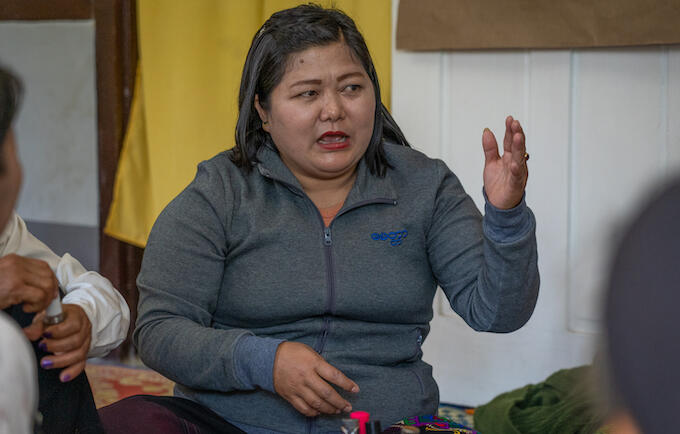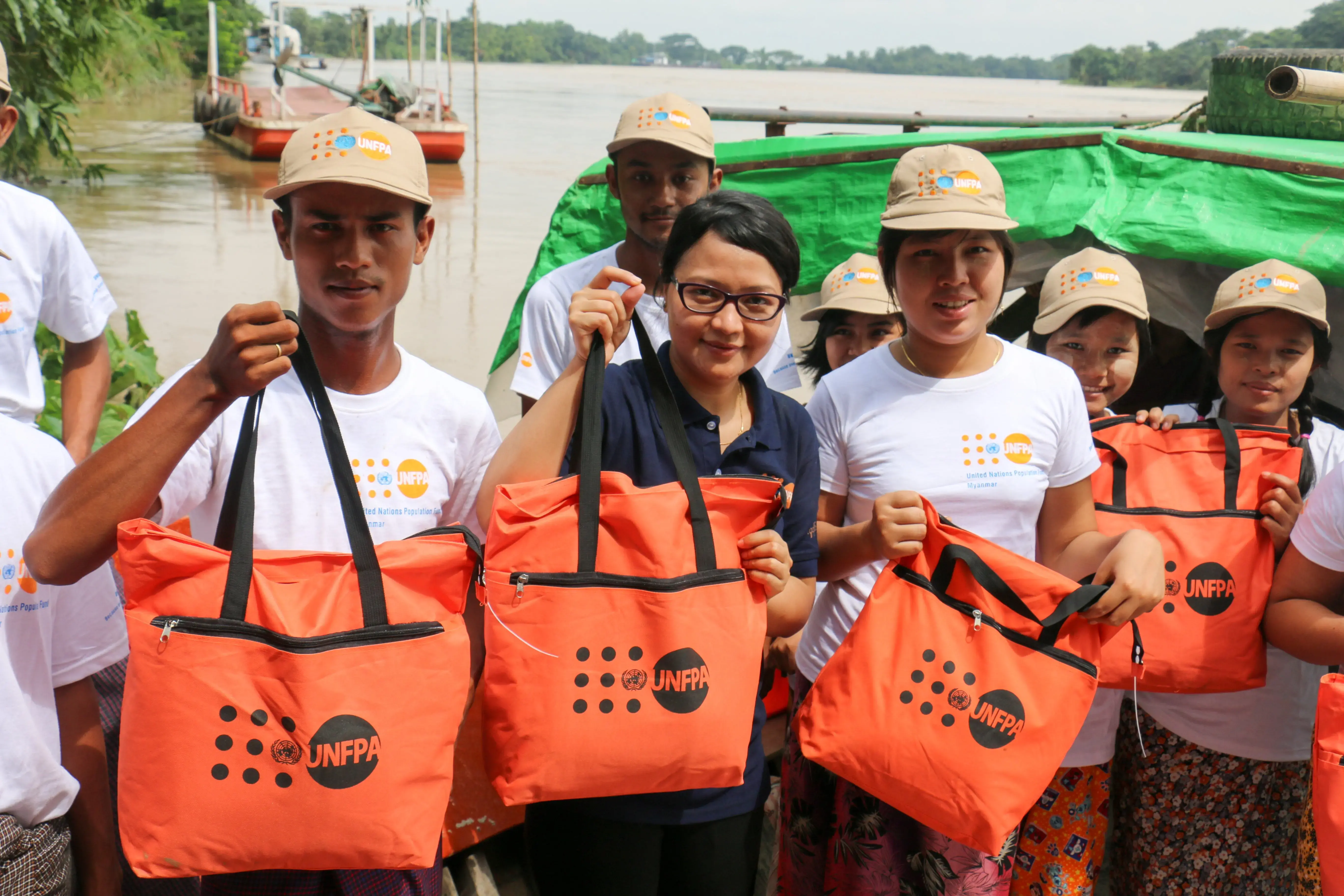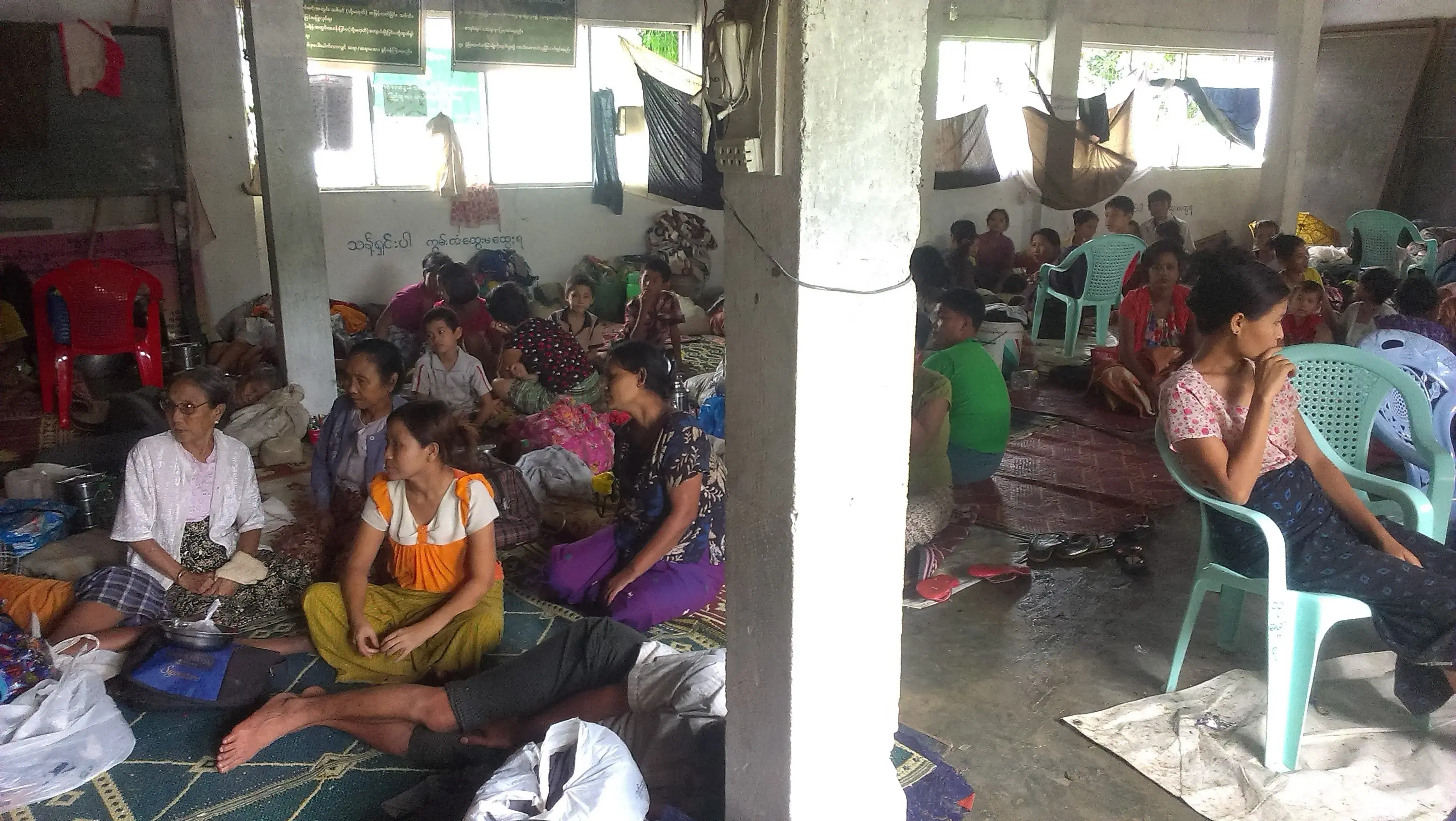Myitkyina, Myanmar – “At the camps for internally displaced persons in Kachin State, most of the gender-based violence cases reported during the COVID-19 pandemic are related to domestic violence,” notes Hkawng Gan, manager of the Metta Foundation’s Women and Girls Centre.
“Due to the movement restrictions and livelihood disruptions, people stay at home in closer proximity and stress levels are rising. Men are increasingly exerting control over women and committing violence against their intimate partners, including sexual violence.”
At the same time, in Myanmar and beyond, the increasing number of COVID-19 cases and measures to prevent the virus’ spread have consequently hampered protection systems meant to keep women and girls in the most vulnerable communities safe from violence.
Those living in IDP camps are especially impacted by the service disruptions, since pandemic-driven movement restrictions have made leaving and entering the camps more challenging, hindering access to gender-based violence support facilities.
“We cannot afford to slow down our life-saving services for women and girls experiencing violence in the time of the COVID-19 pandemic,” Hkawng Gan underscores. “Our services, which survivors of violence access through a GBV helpline, are now even more important in mitigating and responding to this violence.”
Local volunteers from the IDP camps trained by the Metta Foundation, a UNFPA partner, ensure that survivors can seek assistance without needing to leave the camps. And, when further support is required, the volunteers help survivors obtain permission from camp management to visit the UNFPA-supported Safe House, located outside the camps. Operated in partnership with the Metta Foundation and Myanmar’s Department of Social Welfare, survivors receive psychosocial support, temporary shelter and other services at the Safe House, in line with COVID-19 preventive measures.
According to the Myanmar Humanitarian Needs Overview 2020, more than 273,000 displaced people remain in camps or camp-like situations across the country, and 69 per cent are women and children. Kachin State alone has almost 100,000 displaced people.
While COVID-19 is surely exacerbating gender-based violence across Myanmar, including in the IDP camps, this violation of human rights was already far too common before the pandemic.
Of women in Myanmar who have ever been married, 21 per cent have experienced spousal violence, most commonly physical violence, according to Myanmar’s Demographic Health Survey 2015-2016. Given that gender-based violence typically goes vastly underreported, far more women are likely to have survived some form of violence than the data suggest.
Domestic violence is regarded as a private family matter in Myanmar. Survivors who speak out are frequently blamed rather than supported. Therefore, women tend not to file complaints with the police or seek help from local service providers. Indeed, 37 per cent of women who experienced violence never sought help due to community stigma.
This silent endurance of violence makes the situation even harder to cope with.
To enhance women’s ability to reach out for help, UNFPA supports gender-based violence helplines managed by the Metta Foundation’s Women and Girls Centre so survivors in Kachin State can access services under any circumstances. Not only do they provide gender-based violence case management, the helplines also offer psychosocial support to women and girls, including those in IDP camps and at COVID-19 quarantine centers.
These helplines have both advantages and challenges.
“The survivors can tell us about their experiences of violence without being shy or hesitant since it is not a face-to-face discussion,” Hkawng Gan says. “But one of the big challenges for us is that ongoing communication is frequently interrupted due to the poor internet connection. In comparison with face-to-face communication, we need utmost attention to listen to the survivor through the helpline to understand what she has experienced and how she feels.”
Zung Myaw, Prevention Officer at the Metta Foundation, also appreciates the opportunity to continue helping survivors amid the pandemic via the helplines.
“Since we cannot reach the community in the camps as frequently as before, with support of the Women and Girls First Programme, we are delivering our gender-based violence services and psychosocial support in the camps remotely but effectively,” Zung Myaw explains. “It is not a large-scale activity like before, but we as a local service provider in Kachin are adapting to the challenging situation quickly and working really hard for the continuation of life-saving services for vulnerable women and girls in this difficult time.”
UNFPA, the United Nations sexual and reproductive health agency, continues to deliver critical and life-saving gender-based violence, mental health and psychosocial support, and sexual and reproductive health and rights services for the most vulnerable women and girls. This support is made available through 33 Women and Girls Centres, 2 Safe Houses and mobile and static clinics in Rakhine, Kachin, Kayah, Kayin, Mon and Shan States. The UNFPA Women and Girls First Programme is supported by Australia, the European Union, Finland, Germany, Italy and Sweden.




